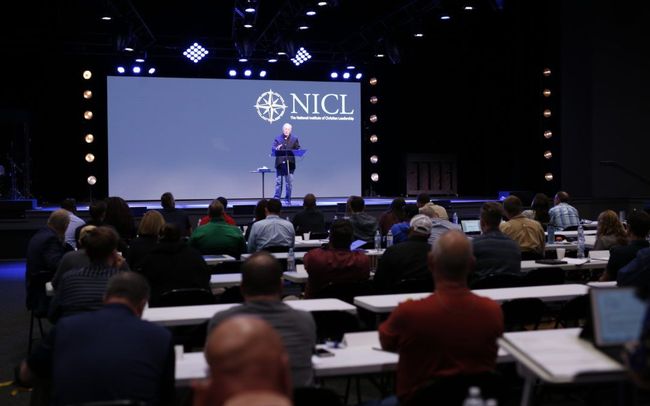Improve Your Leadership Skills
Build Trust & Reduce Conflict
Learn how to build trust and reduce conflict in your ministry!
Build Trust & Reduce Conflict
Learn how to build trust and reduce conflict in your ministry!
About The NICL
The National Institute of Christian Leadership (NICL) is intense and personal leadership training full of real-world applications. It’s a life-expanding and leadership-expanding process spaced over the span of a year. You will learn practical business and spiritual principles that will positively impact your congregation and community.
1200+
Join the thousands of leaders who have attended the NICL.
400+
Join the hundreds of churches that have made NICL training available to their staff.

From Dr. Mark Rutland
I have been in ministry for more than 50 years. Over that time, I have led one mega church back from the brink of ruin, and restored two Christian universities to spiritual and financial success.
As a teacher, preacher and educator, I want to help you learn what we should have all learned before we accepted our first assignment. I developed the NICL to teach you the business of ministry. With all the mistake-filled days of on-the-job training, I know what a year in the NICL would have meant to me.
My experience has grown into a passion to teach and mentor leaders. My goal is to take my life experience and share the most practical leadership lessons with you. You’ll be able to apply these time-tested principles at every stage of ministry as you progress in your career.
Learn from a leader who understands your struggles. Do you feel stuck? Do you feel like you’re not growing? Do you need help from an expert in leadership? There is no other leadership training like the NICL. I am confident that it will not only help you lead your church, business or ministry, it will help you lead in a bold new way to accomplish all of your God-given dreams.
I can’t tell you the satisfaction I’ve received from helping leaders just like you. Past graduates have included leaders from virtually every size and shape church and organization.
I encourage you to enroll in the NICL and bring your staff. This could be the single most important step you take to improving your leadership, growing your ministry and improving your career.
I look forward to seeing you soon,
Dr. Mark Rutland



Who should attend the NICL?
- Leaders of churches and ministries who need a turn-around, who need to refocus their attention on the important areas, who are facing adversity, who need to break through barriers, or just want to hone their leadership skills from an expert.
- Business leaders in marketplace ministry.
- Leaders looking to earn credit hours towards a Master’s degree. Learn more
Your Path To Success
“The NICL was pivotal in our leadership and the turn around of our church.”
– Jamie A. Lead Pastor
“I have learned more in these four sessions than I had in 25 years of ministry. Every class is worth the investment!”
– Ken A. Senior Pastor


